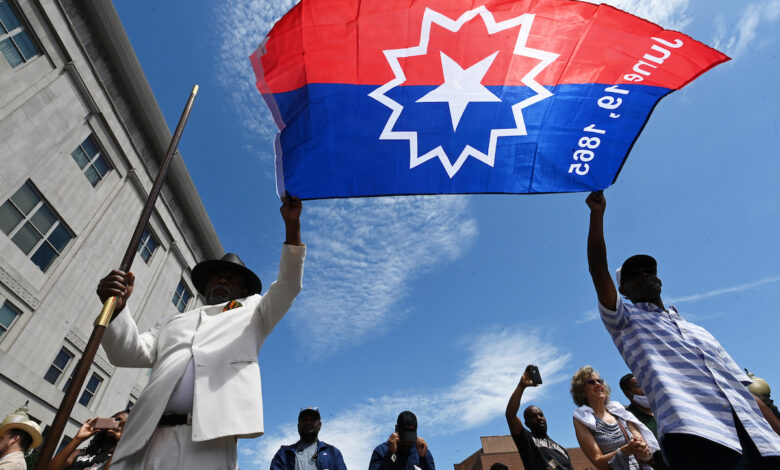Juneteenth’s Enduring Connection to Voting Rights

Juneteenth stands as a poignant reminder of the profound interconnection between the struggle for racial equality and the fight for voting rights in the United States. This historic day, commemorating the promises of emancipation, undeniably honors the past. And it also recognizes the ongoing challenges, both past and present, faced by marginalized communities in their pursuit of full citizenship and political empowerment.
Even after the signing of the Emancipation Proclamation in 1863 and the subsequent ratification of the 13th, 14th, and 15th Amendments, which respectively abolished slavery, granted citizenship to formerly enslaved people, and prohibited racial discrimination in voting, Black people in America continued to face systemic barriers and voter suppression tactics as they sought to exercise their rights.
Throughout the Reconstruction era from 1865-1877 and well into the 20th century, Black people confronted a series of discriminatory practices such as literacy tests, poll taxes, intimidation, and violent acts aimed at suppressing their political participation. Black codes, restrictive laws created to inhibit Black people’s freedom after slavery had ended, also placed limitations on their ability to own land, earn wages, and participate in the political process. These concerted efforts sought to undermine the hard-fought gains of freedom.
In the face of such adversity, Black communities rallied together, organizing voter registration drives, advocating for equal access to the ballot box, and demanding their constitutional rights. This community-based advocacy echoes that found in the earliest Juneteenth celebrations, during which organizers held political rallies and provided newly-freed individuals with information about their voting rights. In these shared moments was the recognition that freedom, long-deferred, would be an active fight. Juneteenth became a rallying cry — a symbol of resilience and determination — as Black people recognized that their liberation was intertwined with the right to shape their own destinies through meaningful political engagement.
Source link




